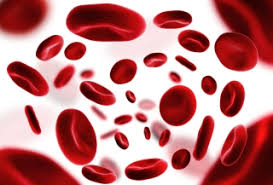 As any physician will tell you, the MCAT is perhaps the most important step to placement in a medical school or graduate-level health care education. In terms of importance, it’s like the Bar Exam, considering how scrutinized the MCAT is and how much medical school courses focus on passing the boards.
As any physician will tell you, the MCAT is perhaps the most important step to placement in a medical school or graduate-level health care education. In terms of importance, it’s like the Bar Exam, considering how scrutinized the MCAT is and how much medical school courses focus on passing the boards.
MEdical School News and MCAT Strategy
Stay current with the latest med school admissions news and proven MCAT strategies.
Acing General Chemistry on the MCAT
 Reviewing and relearning a multitude of topics and subjects for the MCAT is no easy feat for most students. Many find general chemistry especially burdensome since it is usually taken freshman year and well forgotten by the time MCAT preparation comes around. This article explores various tips useful for brushing up on your chemistry knowledge and studying for it as efficiently as possible.
Reviewing and relearning a multitude of topics and subjects for the MCAT is no easy feat for most students. Many find general chemistry especially burdensome since it is usually taken freshman year and well forgotten by the time MCAT preparation comes around. This article explores various tips useful for brushing up on your chemistry knowledge and studying for it as efficiently as possible.
It's in Your Blood: Understanding Hematology on the MCAT
 In our last post on the Medical College Admissions Test (MCAT), we discussed the integration of endocrinology and physics in the cardiovascular system. This month we will dive in further and discuss the hematologic system that drives the cardiovascular system and how to apply concepts from genetics and chemistry.
In our last post on the Medical College Admissions Test (MCAT), we discussed the integration of endocrinology and physics in the cardiovascular system. This month we will dive in further and discuss the hematologic system that drives the cardiovascular system and how to apply concepts from genetics and chemistry.
Don't Go Breaking My Heart: Cardiology on the MCAT
 Cardiology is typically a favorite topic for most students. The heart is one of the most revered organs and the majority of students are taught baseline information about the heart during their primary school education. The American Association of Medical Colleges (AAMC) also loves the cardiovascular system and often tests students’ knowledge of it in the Medical College Admissions Test (MCAT). Additionally, this cardio knowledge will serve you well as a future medical student since cardiology tends to be one of the most difficult courses. This article will discuss the cardiology content on the MCAT, interdisciplinary connections for this content, as well as some tricks and tips on how to maximize cardiology questions in the Biological and Biochemical Foundations of Living Systems section on the MCAT.
Cardiology is typically a favorite topic for most students. The heart is one of the most revered organs and the majority of students are taught baseline information about the heart during their primary school education. The American Association of Medical Colleges (AAMC) also loves the cardiovascular system and often tests students’ knowledge of it in the Medical College Admissions Test (MCAT). Additionally, this cardio knowledge will serve you well as a future medical student since cardiology tends to be one of the most difficult courses. This article will discuss the cardiology content on the MCAT, interdisciplinary connections for this content, as well as some tricks and tips on how to maximize cardiology questions in the Biological and Biochemical Foundations of Living Systems section on the MCAT.
What Exactly is a Nephron?: A Guide to Physiology on the MCAT
When Should I Take the MCAT?
 College in and of itself is a daunting process for most students. Studying constantly for twelve to eighteen hours of course work, juggling extracurricular activities, and trying to maintain an active social life can be challenging. Add in aspirations to attend medical school and suddenly you are overwhelmed. Needless to say, this entire process requires a significant amount of planning. Hopefully by the end of this article you’ll have at least resolved one concern on your list and answered the question of when to take your medical college admission test (MCAT).
College in and of itself is a daunting process for most students. Studying constantly for twelve to eighteen hours of course work, juggling extracurricular activities, and trying to maintain an active social life can be challenging. Add in aspirations to attend medical school and suddenly you are overwhelmed. Needless to say, this entire process requires a significant amount of planning. Hopefully by the end of this article you’ll have at least resolved one concern on your list and answered the question of when to take your medical college admission test (MCAT).
To Cram or Not to Cram: A Guide to the Week Before Your MCAT
 It has been close to a hundred days, or at least it feels that way. You’re a week away from something you have been anxiously planning and studying for, your Medical College Admissions Test (MCAT). Students in this last week of studying often reach one of two emotional states: anxiety or exhaustion. In this article we will discuss how to best combat these two common stages in the study process and how to utilize that final week prior to taking your admissions test.
It has been close to a hundred days, or at least it feels that way. You’re a week away from something you have been anxiously planning and studying for, your Medical College Admissions Test (MCAT). Students in this last week of studying often reach one of two emotional states: anxiety or exhaustion. In this article we will discuss how to best combat these two common stages in the study process and how to utilize that final week prior to taking your admissions test.
Should I Retake the MCAT?
 Application season is quickly approaching, which means that Medical College Admissions Test (MCAT) score reports from last year and this winter break are beginning to be released. While some students will achieve their target scores, others may fall just short of their goals. Many students are then faced with the question of, “Should I retake my MCAT?” This prompts a myriad of other questions along with it. Below we’ll discuss when you should consider signing up for a retake and what to consider if you decide to take the test again.
Application season is quickly approaching, which means that Medical College Admissions Test (MCAT) score reports from last year and this winter break are beginning to be released. While some students will achieve their target scores, others may fall just short of their goals. Many students are then faced with the question of, “Should I retake my MCAT?” This prompts a myriad of other questions along with it. Below we’ll discuss when you should consider signing up for a retake and what to consider if you decide to take the test again.
Three Ways to Avoid Medical School Rejection
 Why is medical school so hard to get into?
Why is medical school so hard to get into?
Medical schools suffer from poor retention rates, and it takes a lot of hard work and dedication to become a doctor. When schools are reviewing applications, they need to be absolutely sure that an individual has the academic skillset, experiences, and passion needed to make it through med school and to become a doctor. With acceptance rates at some of the most competitive schools in the single digits, most students feel lucky to get into ANY medical school.
E=MC2: Why Equations are Relative[ly] Important for Scoring High on the MCAT
 The Chemical and Physical Foundations of Biological Systems section of the Medical College Admissions Test (MCAT) is conceptually one of the most difficult sections of the exam. With 59 questions in a 95-minute span, it integrates and tests dense subjects such as biochemistry, biology, general chemistry, organic chemistry, and physics. This section not only requires a conceptual understanding of these topics, but also tests the student’s ability to interpret, analyze, and calculate the answer to complex problems. Because of this, it is vital that students know many equations cold prior to entering the test. Here we will provide you with recommendations for creating equation sheets and methods for memorizing them.
The Chemical and Physical Foundations of Biological Systems section of the Medical College Admissions Test (MCAT) is conceptually one of the most difficult sections of the exam. With 59 questions in a 95-minute span, it integrates and tests dense subjects such as biochemistry, biology, general chemistry, organic chemistry, and physics. This section not only requires a conceptual understanding of these topics, but also tests the student’s ability to interpret, analyze, and calculate the answer to complex problems. Because of this, it is vital that students know many equations cold prior to entering the test. Here we will provide you with recommendations for creating equation sheets and methods for memorizing them.
‘That Rings a Bell’: How to Study for the Psychological, Social and Biological Foundations of the Behavior Section of the MCAT
 The Psychological, Social, and Biological Foundations of Behavior section was newly introduced to the Medical Colleges Admissions Test (MCAT) in 2015. It was implemented to emphasize the importance of social science skills in medicine and foster the growth of social and cultural competence in future physicians. This section integrates and tests psychology, sociology, and biology concepts while utilizing statistical models. Arguably, this portion of the MCAT requires a heavier burden of memorization of facts, models, and theories than other sections. However, in some ways this allows students to see a greater score increase on this section based primarily on the time dedicated to this section. Below, we will discuss how to approach studying for this section of the MCAT and techniques to improve your score.
The Psychological, Social, and Biological Foundations of Behavior section was newly introduced to the Medical Colleges Admissions Test (MCAT) in 2015. It was implemented to emphasize the importance of social science skills in medicine and foster the growth of social and cultural competence in future physicians. This section integrates and tests psychology, sociology, and biology concepts while utilizing statistical models. Arguably, this portion of the MCAT requires a heavier burden of memorization of facts, models, and theories than other sections. However, in some ways this allows students to see a greater score increase on this section based primarily on the time dedicated to this section. Below, we will discuss how to approach studying for this section of the MCAT and techniques to improve your score.
Do I Really Need to Know the Kreb's Cycle?
Since the introduction of the biochemistry section to the Medical College Admissions Test (MCAT), premedical students across the country have bemoaned its addition to the exam. As a first-year medical student who just finished my biochemistry block, I am coming to realize the importance of learning the Kreb’s cycle and other seemingly arbitrary facts. This article is intended to provide tips and tricks on how to learn and memorize some of the more complex portions of the biochemistry section of the MCAT. I also hope to provide some clinical relevance to help motivate you in studying this dense material.
A Guide to Reviewing MCAT Practice Exams
When studying for the Medical College Admissions Test (MCAT), most students tend to focus on studying through content review and reading preparation books. However, an essential method for preparing for this exam is taking numerous practice tests to prepare for the format as well as the arduous length of the exam. A critical portion of this practice is to effectively review exams in order to assess strengths and weaknesses in both content and testing strategies. Below we will discuss tips to optimizing your practice exams and strategies for reviewing them.
6 Common Questions on the CARS section of the MCAT
Daily, physicians face challenges to apply, analyze, and communicate scientific and medical information. The ability to communicate and analyze is a softer skill that is difficult to develop compared to the effort it takes to memorize something like the Krebs’s cycle. This vital skill set has become emphasized by the Association of American Medical Colleges (AAMC) through the production of the Critical Analysis and Reasoning Section (CARS) on the Medical College Admissions Test (MCAT). CARS is the section that most premedical students struggle with and requires the most time to build skills. Identifying question types on your exam will allow you to establish patterns of performance and test trends. Below we will discuss the six most common types of questions you will encounter on the CARS section and how to best approach them.
8 Things to Consider When Creating a Study Schedule for the MCAT
The Medical College Admissions Test (MCAT) is one of the most challenging graduate school entry exams. While the content and strategy is difficult, it is essential for students to focus on planning when preparing for this lengthy exam. A successful MCAT preparation begins with creating a study schedule that manages to accommodate your other commitments while meeting your preparation needs. Here are eight tips to assist you in preparing your own study schedule for the exam:
Preparing Your Letters of Recommendation for Medical School Admission

Preparing Your Letters of Recommendation for Medical School Admissions
High quality letters of recommendation can make all the difference when you are applying to medical school. The best letters are the ones that can provide great details on your strengths and all of the reasons that you should be considered as a student. When you are getting ready to include these in your application, remember all of the following:
Mastering Your MCAT: Prep Consistency is Key
In my years as a scientist, I have found that in a world as diverse and unpredictable as our own, it is paramount to remain consistent in the ways we study the world and conduct experiments. Good studies need to have control groups that do not receive treatment and reflect the status quo. Likewise, when preparing to battle the beast that is the MCAT, consistency is key. While the ideas below are broadly relevant to any type of standardized exam, they are particularly important when preparing for the MCAT. Why? Because the MCAT requires memorization of so many facts across multiple subject areas, understanding of a broad range of concepts, and the ability to focus to apply these facts and concepts to correctly answer difficult questions. The GMAT by contrast, a test taken for admission to graduate business school, requires absolutely no knowledge of business subjects at all.
Here are a few factors to consider keeping consistent when preparing for the MCAT.
5 Most Valuable Resources for Writing a Personal Statement

The college personal statement is an opportunity for a student to sell himself or herself in the application process. This purpose of this essay is to show the admissions office who you really are. What about you is different from other applicants? What does your perspective make you unique? What experiences have you had that will shape your college career? This essay should provide additional evidence of your intellectual and creative achievement.
As this is such an important part of the application, it’s important to do your research before you begin writing. Below is a list of valuable websites and resources to help you approach your personal statement:
- College Board is a mission-driven, not-for-profit website that aims to connect students to college success and academic opportunities. Each year, it helps millions of applicants prepare for a successful transition to college through various programs and services. For tips on personal statements and essays, check out Big Future by the College Board.
- College Confidential is a website designed to guide students and parents about the many aspects of the college admissions process and help them understand each stage of the process. The website has assembled an editorial team responsible in creating content and gathering helpful information about college admissions from the web.
- College Essay Organizer is a website that gathers past and present essay questions from different colleges and universities in the US and shares them to aspiring college students to help them write impressive personal essays and statements. The website has been helping tens of thousands of students get into the colleges of their dreams for decades through the service it provides.
- InGenius Prep is a website run by former admissions officers from the most competitive schools in the United States. It provides helpful advice, tips, and information about college application, passing standardized tests, interview preparations, and admissions requirement handling. Every year, InGenius Prep helps millions of applicants get into their dream colleges through application consultancy and candidacy building.
- U.S. News & World Report is a big, multi-platform, publisher of news and information about education, career, and employment. It is known for the rankings it presents for Best Colleges, Best Graduate Schools, Best Law Schools, Best Medical Schools, and specific programs within those more general categories. Aside from these, the website features blogs, interview texts, and other useful information about college application and admissions that can help aspiring college students get into the school they prefer the most.
How Much Does Medical School Cost?

Getting into medical school requires mental and emotional preparation, as well as financial readiness. Med school is expensive, and everyone who wants to be a doctor knows this. If, despite the looming financial burden and the premed critics you will face, you are still thinking about applying to med school, below is a summary of the financial cost of attending medical school. Proceed with caution...
Medical School Tuition
According to the Association of American Medical Colleges (AAMC), the median tuition in 2013-2014 was $31,783 for resident students at public institutions, $55,294 for non-resident students at public institutions, $52,093 for resident students at private med schools, and $50,476 for non-resident students at private med schools. These figures do not include health insurance, housing, and other expenses.
So, for four years of medical school, a public school would cost $127,132 for resident students and $221,176 for non-resident students. At private schools, the entire cost of medical education totals $208,372 for resident students and $201,904 for non-resident students.
How Many Medical Schools Should I Apply To?

So, you have decided to go to medical school. You rocked your premed program, strengthened your CV, and passed the MCAT with flying colors. You now reach the moment to decide where to submit your applications and how many medical schools should you apply to.
Deciding which medical school to apply to is an extremely important part of the application process. Moreover, it can really be challenging, expensive, and time consuming. Not only do you need to identify which schools will be able to provide you with your academic needs and educational expectations, but you will also have to match your qualifications with the school’s standards.
Considerations when Applying to Medical School
- Applying to med school costs a lot of money. The AMCAS costs $160 for the first application, and $33 for succeeding applications. Thus, applying to ten schools will cost you $457 for the AMCAS application alone. In addition, you will also have to submit secondary applications that often times cost money, too. Expect to pay at least $150 for secondary applications.
- Applying to med school can be time consuming. After submitting your AMCAS application, it can take several weeks for your application to be verified and released to the schools you have applied to. The hard work continues when you are expected to complete your secondary applications, which require new essays, forms, and documents to be submitted. Finally, the interview process will also take a lot of your time and energy.
- You can never be too sure about your applications to med school, as acceptance rates are extremely low. With this in mind, make sure that you submit your applications to a good number of medical schools to guarantee that you will get into one, including reach schools, safety schools, and fit schools. While you want to attend a top-tier medical school, as everyone else does, it is smart to have a fall back option in case you will not make it.
So, How Many Medical Schools Should You Apply to?
How to Get Financial Aid for Medical School

Medical school is expensive. When applying, you have to be mentally prepared for the financial burden that attending medical school will place on your life. So, how much does medical school cost? Let’s find out...
Medical School Tuition and Fees
In 2013–2014, the average cost of med school tuition and fees at public schools was approximately $31,783 for in-state residents and $55,294 for non-residents. At private schools, the average annual tuition and fees was approximately $52,093 for residents and $50,476 for non-resident students. These figures discuss tuition alone and don’t even include health insurance, housing, books, and the cost of being out of the workforce.
According to Julie Fresne, the director of student and resident deb management services at the Association of American Medical Colleges (AAMC), with such an immense cost of attending medical school, the median debt level for a graduating medical student is approximately $175,000 while 25% of graduating medical school students have debt exceeding $200,000.
These numbers can truly be discouraging. However, aspiring medical students should know that there are many resources to help manage your money, get financial aid, and to pay for medical school.
Top 5 Dos and Don'ts to ACE Your Medical School Interview

This article is a guest post written by Admissions Helpers.
The Advantages and Disadvantages of Going to Medical School

For children, it is very easy to answer “doctor” when asked what they want to be when they grow up. While their intentions are pure and honest, their innocence blinds them from the fact that becoming a doctor is extremely challenging.
The Med School Application Timeline: From MCAT to Interview Prep
This is a guest blog post from our friends at InGenius Prep. 
Medical School: 5 Moves that Will Get You On the Right Track

If you are thinking about going to med school, congratulations. You are to be admired for aiming so high and taking on a challenging field with many rewards. You'll need to be completely committed and driven to achieve your goals. Certainly, scoring in the 75th percentile or higher on the MCAT will be critical. However, there are a variety of others things you can and should start doing today to prepare.
Start out by taking 5 moves that will get you on the right track today.
1. Hit the Books
Putting Together a Med School Application That Gets Noticed
 More than 600,000 people submitted applications to med school last year, according to the Association of American Medical Colleges (AAMC). Contrast that to the almost 20,000 medical students who graduated in 2012, and you can easily see how difficult getting into med school is. It's vital you and your application stand out from the crowd. These tips will give you the best chance of being considered among the thousands that get reviewed.
More than 600,000 people submitted applications to med school last year, according to the Association of American Medical Colleges (AAMC). Contrast that to the almost 20,000 medical students who graduated in 2012, and you can easily see how difficult getting into med school is. It's vital you and your application stand out from the crowd. These tips will give you the best chance of being considered among the thousands that get reviewed.
6 Ways to Use an MCAT Tutor to Boost Your MCAT Score
1. Objective Evaluation of Readiness to Embark on the MCAT Odyssey
The first thing that you need to do before you even start to do anything committing for the MCAT is evaluate whether or not you are ready right now. While some say that you may take the MCAT more than one time (up to two or three), it is not recommended. Depending on the school and rigor, schools may take your best individual sections as your score, or average out the scores, or take the lowest score, no matter what. So in the end, you want to take the MCAT once, and a knockout once. Read as much as you can about the MCAT and what it entails to prepare for it. Also worth evaluating is if a career medicine is what you like. If you are gritting your teeth down for studying because “you really don’t like to study,” then maybe a career spent studying, even after graduation, is not the best for you. Evaluate if you have what it takes, because us tutors here do not want you to waste your resources, time, and effort on anything.
MCAT Success Depends on these 5 Attitude Shifts
1. Priority Shift to a Career In Medicine
Deciding to undertake and conquer the MCAT is also an unspoken commitment to the profession of medicine. Just as studying during medical school will takeover most all priorities, preparation for the MCAT should also begin to take priority in your life now. It is an investment in the now for a much larger return of a medical degree and career, later. It is sometimes daunting when students make this realization all too late, but the MCAT is the first exam in a series of exams that will qualify you and prepare you for the medical profession.
Five Tips for Successful MCAT Prep: Part 2
Five Tips for Successful MCAT Prep: Part 1
 The MCAT is a beast of an exam – there’s no way around it – and for many of you, it will also likely be your first real challenge academically, in terms of necessary preparation, exam intensity and sheer volume of subject matter. It won’t be easy, regardless of your IQ or SAT scores, but with a little bit of assistance and a whole lot of dedication, it is absolutely doable and within your reach.
The MCAT is a beast of an exam – there’s no way around it – and for many of you, it will also likely be your first real challenge academically, in terms of necessary preparation, exam intensity and sheer volume of subject matter. It won’t be easy, regardless of your IQ or SAT scores, but with a little bit of assistance and a whole lot of dedication, it is absolutely doable and within your reach.
New MCAT Forum Coming Soon
Thanks for visiting our new MCAT forum/blog - unfortunately, we haven't yet started posting - but we will soon. Please come back soon to learn about the MCAT in general,...
Acing the MCAT - Test Day, Here You Come
The day has finally come and now all those hours spent nose to page are going to pay off. But how do we minimize stress and anxiety in order to maximize all of the time we spent in preparation. This post is intended to give you an overview on what to expect on test day. Because being prepared for what you will encounter, in addition to content, will help reduce stress and help you achieve your target score.
INVEST IN MCAT TEST PREP
Combining “off-the-shelf” or free test prep materials with an expert MyGuru tutor for 1-1, customized support is the most effective & efficient way to prep.



